Signs of the times: Getting a message across on the streets
- Published
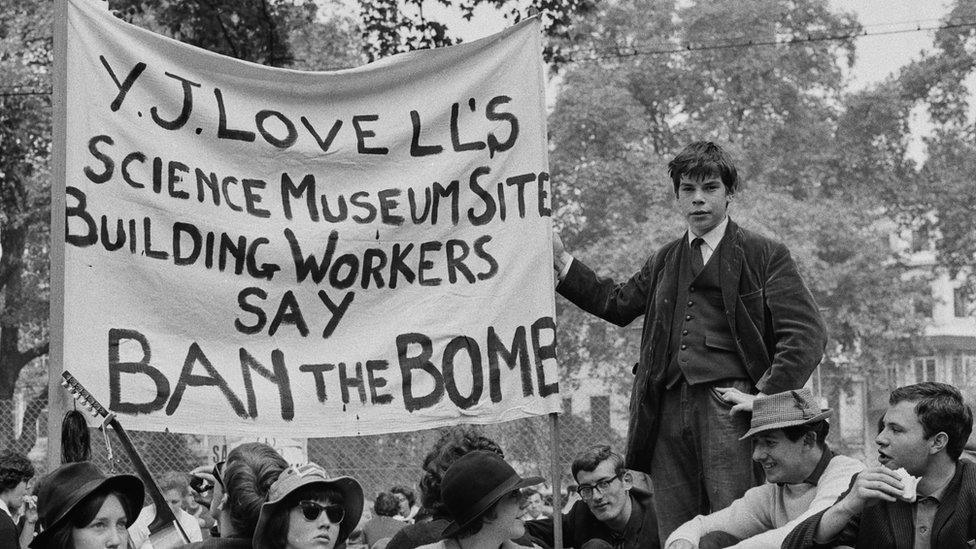
An uneasy alliance between imparting a message and being acknowledged for it
One of the most important components of a crusader's campaign is to spread information - or disinformation - to as many people as possible. Social media has, to some extent, allowed all of us to become influencers in this manner. But for some, there's nothing quite like daubing a pithy slogan on a placard and taking to the streets.
BBC News takes a brief look at the long history of sign-toting activists, ranging from the man who wanted to ban protein to the man who was adamant things would "only get worse".

Protein = passion = placard
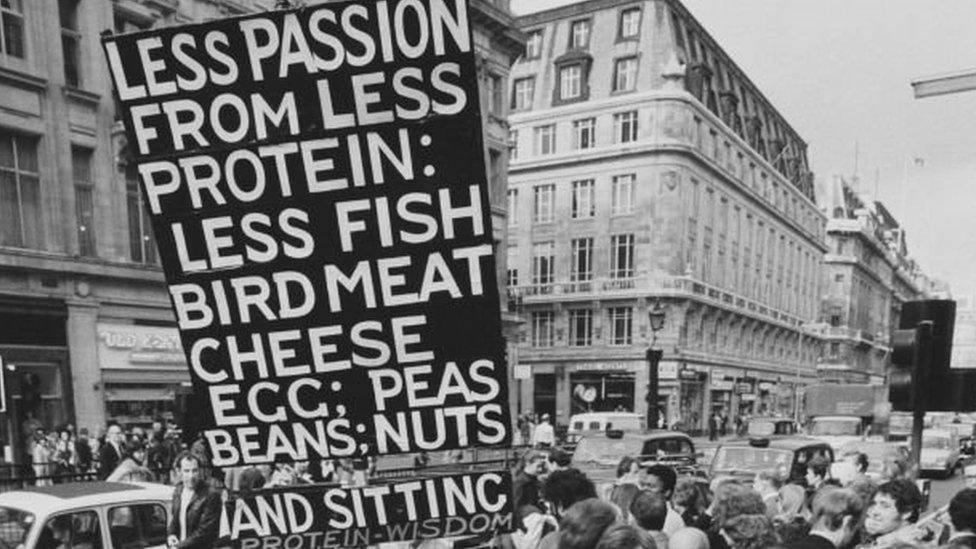
The message is clear - people wanting to remain passionless should indulge less in "fish bird meat cheese egg peas beans nuts. And sitting"
Stanley Green, who unsurprisingly became known as Protein Man, was an enthusiastic dietary reformer.
After being demobbed from the Navy at the end of World War Two he undertook several jobs, and eventually supported himself as a gardener.
His anti-protein crusade arose from the "shock" he said he experienced during wartime at the "bawdiness or passion" of fellow sailors. He believed excess protein in the diet of adults "directed to the reproductive system and so principally to sexual activity".
He began a public campaign among Saturday shoppers in south Harrow before dedicating himself full-time to the cause, which he took to central London. Between 1969 and 1993 he became an almost daily sight for the office workers, shoppers and tourists in and around Oxford Street.
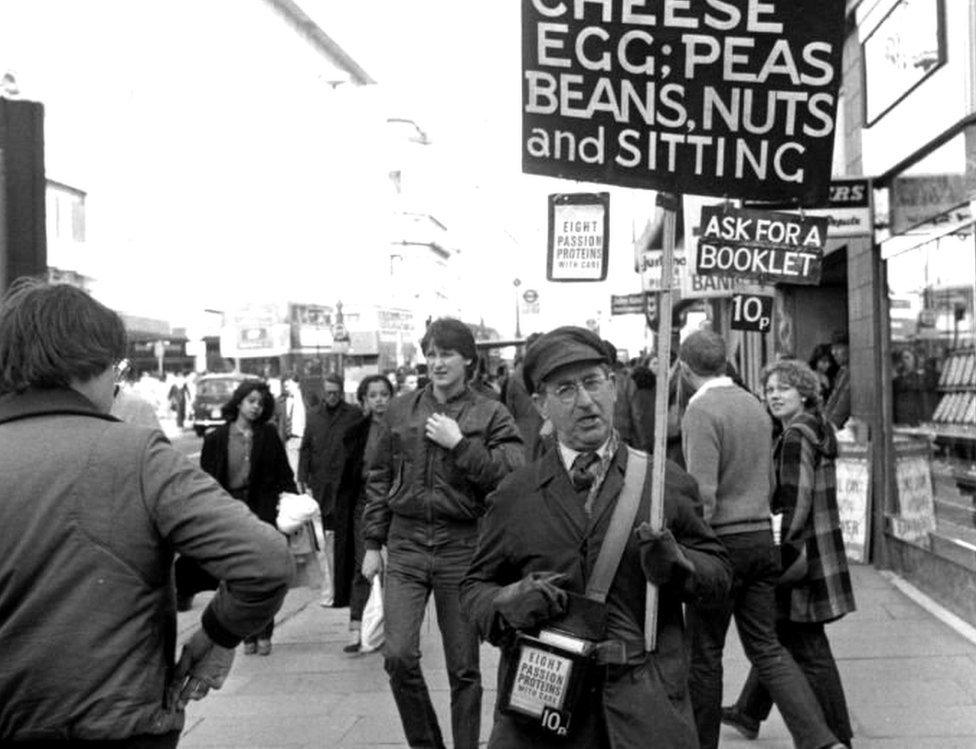
"10p for a booklet about getting rid of passion? A bargain!", as probably nobody said, ever
He wrote his banner, listing the foods he thought were contributing to lust. Later, he added an extra piece to include "sitting" as another source of such behaviour. This was the only modification he made to the sign in 25 years.
Also unchanged was his outfit - a uniform of cap, overalls, satchel, and wire-rimmed glasses. During his campaign he was twice arrested, in 1980 and 1985, for public obstruction.
One particular edict in one of the pamphlets he wrote and distributed perhaps indicates that lentils and meat were not his main concern.
"Wives should not dress to seduce all the time. Single women never," the unmarried Mr Green declared.
He died in December 1993. His message board is now held by the Museum of London.

The end is (nearly) nigh
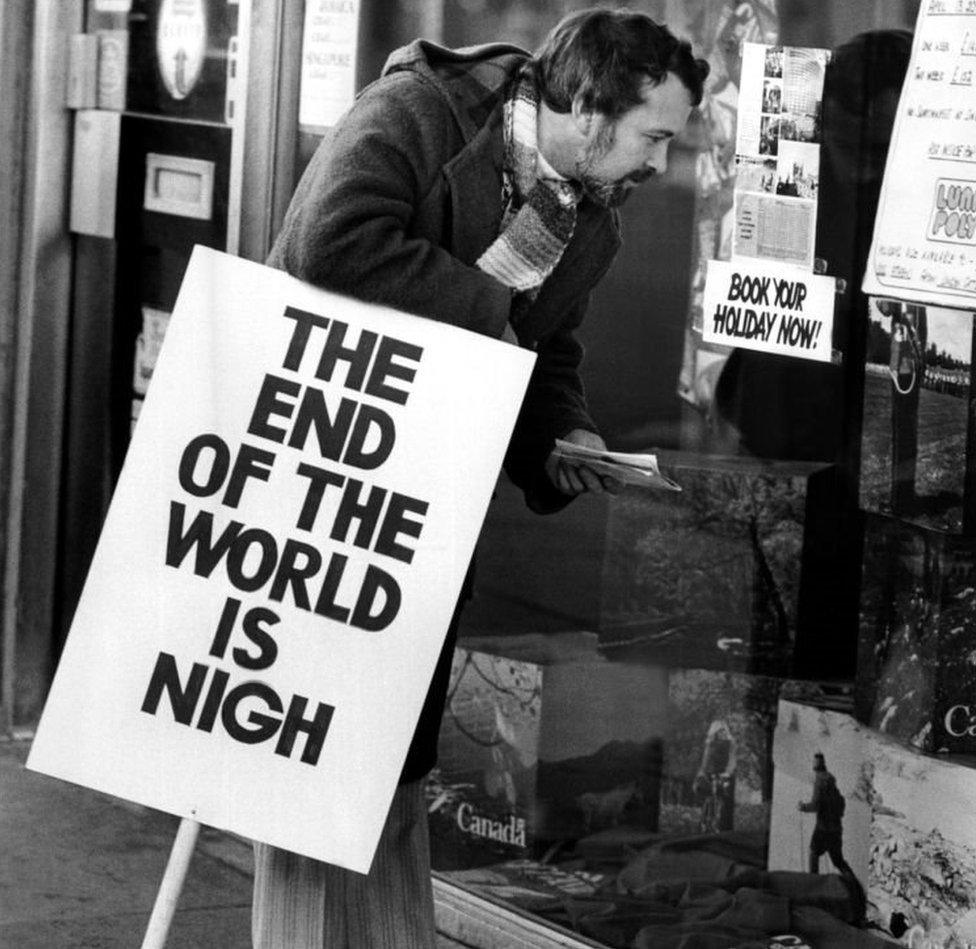
The perfect time to bag a bargain holiday is obviously during the small window between now and nigh
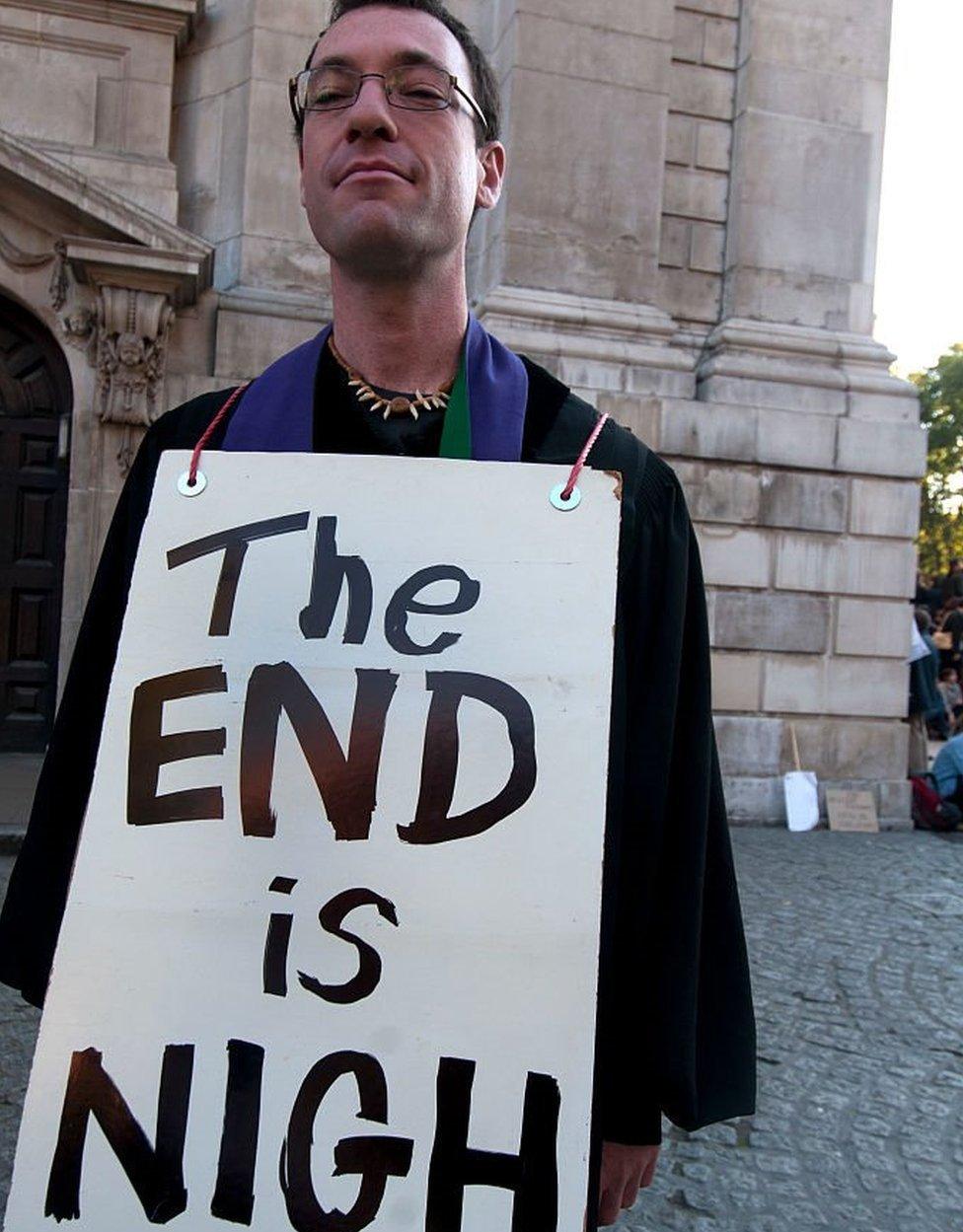
Still nigh in 2011 (but in colour)
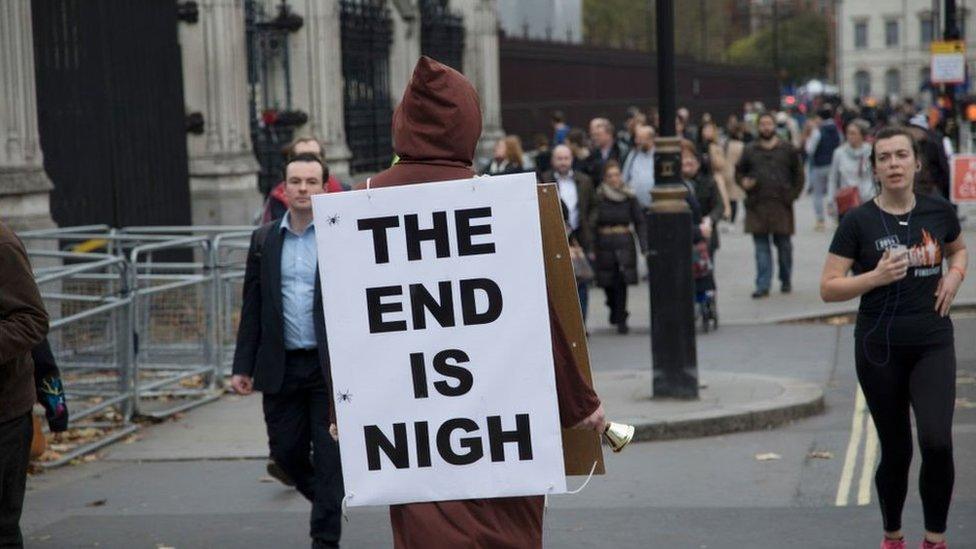
Still nigh on Budget Day 2017
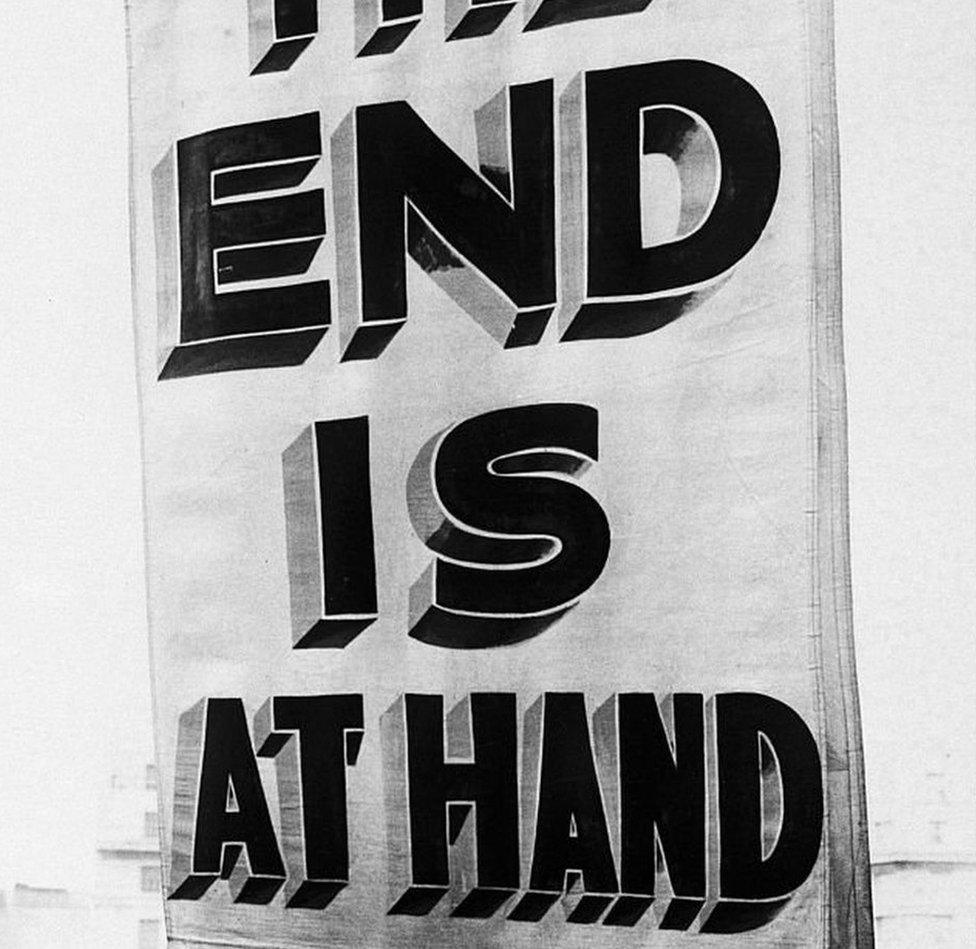
Is "at hand" sooner than nigh?

Bill Boaks

Mr Boaks, his converted bicycle and some extremely specific signs
Commander Bill Boaks - another former sailor - kept himself busy by trying to get elected, trying to take the prime minister's wife and members of the Royal Family to court, and campaigning about road safety.
Politics and law did not work out for him - for some time he had the dubious distinction of garnering the fewest votes in an election (eventually that crown was snatched by Screaming Lord Such), and lost all of his deposits.
For some reason, his slogan of "only one Bill Boaks public safety premiership candidate" failed to ignite the electorate.
Road safety was his lasting obsession. In 1955 he embarked on his own guerrilla campaign to curb motorists by the simple expedient of stopping his placard-bedecked car in the road and refusing to move. He was fined a number of times for obstructing the highway.
This came to a dismal end when he stopped at a green traffic light and beckoned a pedestrian into the road - and into the path of another car.
He earnestly believed in cutting down road traffic and keeping cyclists and pedestrians safely away from cars.
When he died, the then Minister of Transport Peter Bottomley attended his funeral to pay tribute to his dogged campaigning.
Bill Boaks stood in the 1979 general election as the Public Safety Democratic Monarchist White Resident candidate

Bob 'Doom' Rogers
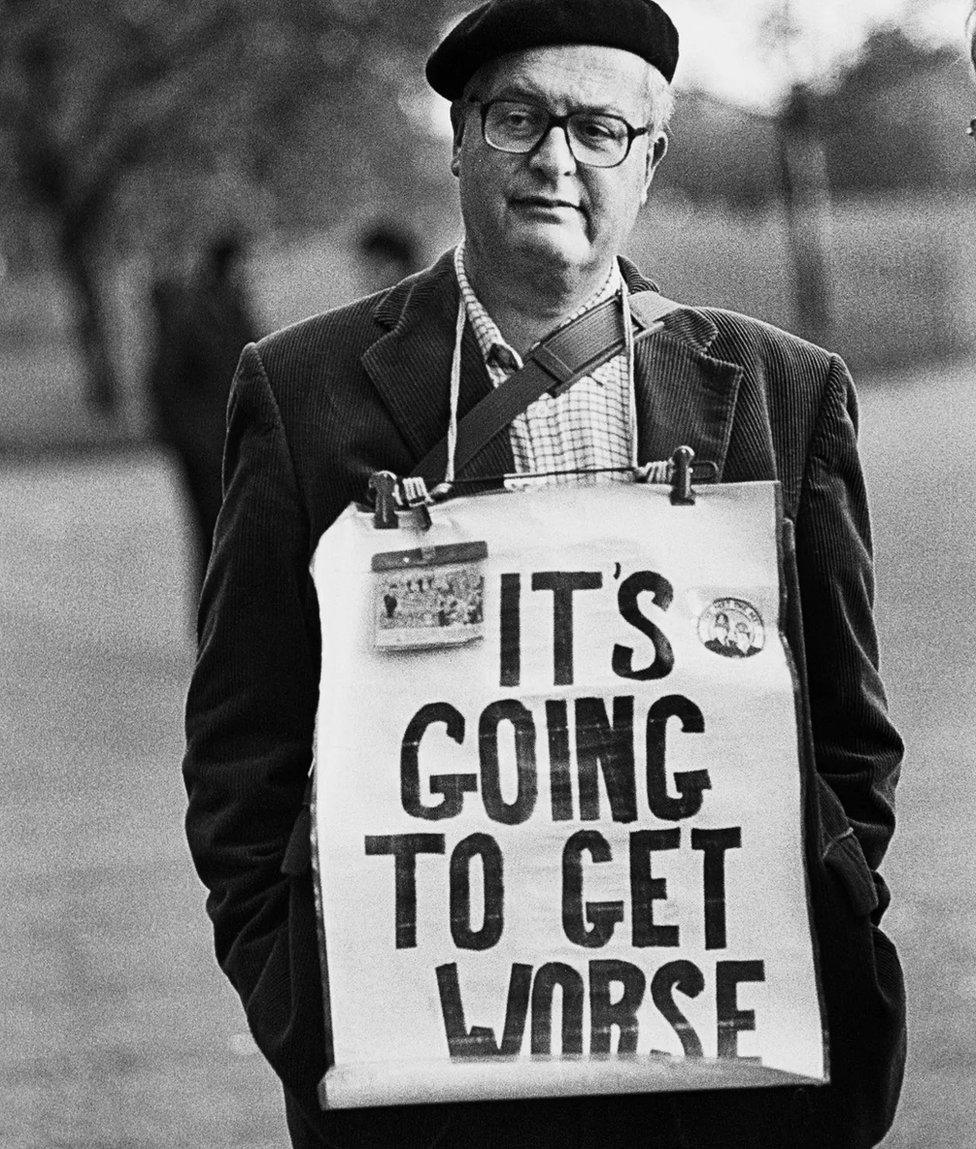
D:Ream's first draft didn't hit quite the right note
Bob Rogers and his tabard of doom became so well known he was featured in some guidebooks to the capital. In one interview he explained how he happened across his distinctive sign.
"It was the winter when British Rail reported 'the wrong kind of snow' on the line and that became an Evening Standard headline. The next day I saw 'It's Going to Get Worse' on the news stand, as I went through Piccadilly on a bus.
"So I jumped off and took it from the hoarding and put it in my bag because I like the prose style of newspaper headlines."
Mr Rogers visited Speakers' Corner one afternoon where he said "everyone looked so miserable that I took it out of my bag and held it up, and it made them all smile".
He was a regular contributor to the South East Bayswater Residents' Association, external newsletter and campaigned for better toilet facilities, the elimination of graffiti; and against surveillance cameras that he believed would ensure life would indeed "only get worse".

Women
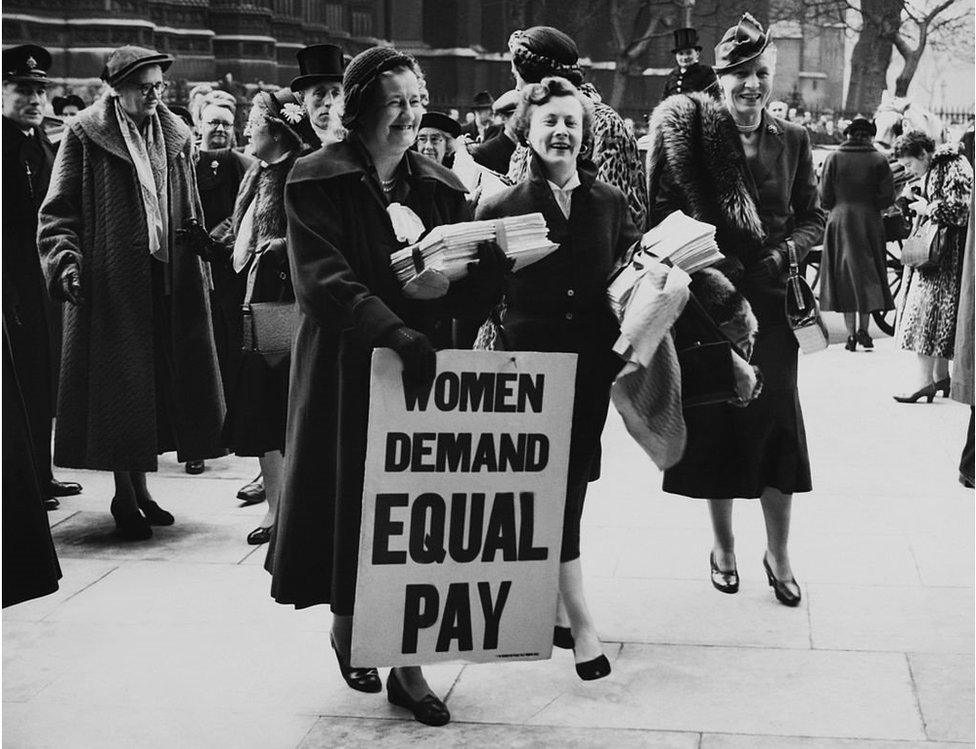
What on earth will the silly little dears dream up next?
While some men kept themselves busy by tackling the great injustices related to passion, traffic and general doom, women were taking to the streets to complain about such trifles as gender inequality and violence.
Activist group Women Against Violence Against Women took their placards and held a protest outside the Royal Courts of Justice in Westminster, unhappy about a judge's decision to fine, rather than imprison, a man who had raped a teenage hitchhiker.
Bertrand Richards, sitting at Ipswich Crown Court, had decided that the victim was guilty of "contributory negligence" for accepting a lift from a stranger.
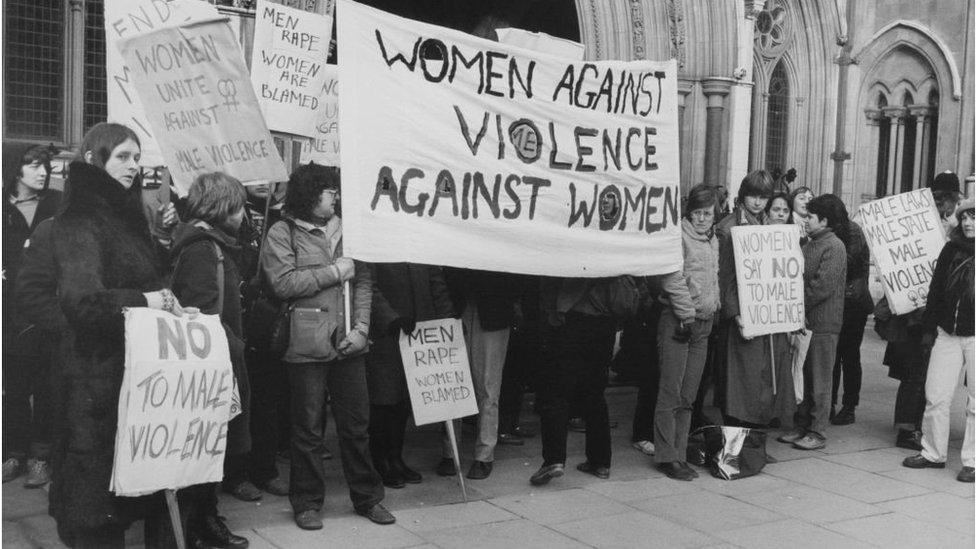
Depressingly, this image could be used at any point in history - and probably even the future
Women were not allowed to drive London buses with passengers until 1974, when London Transport finally gave in (just before the Equal Pay Act and Sex Discrimination Act, which came into force in 1975).
The Act should have created a generation of women who no longer needed to accept that sexism was just the way of the world.
However, the gender pay gap still exists, external.
Just a fifth of commercial roles on the boards of Britain's 350 largest listed companies are female.
Women make up nearly 90% of (reported) victims of sexual assault., external
Less than a third of parliamentarians, external are women.
Maybe it is not yet time to put the placards down.
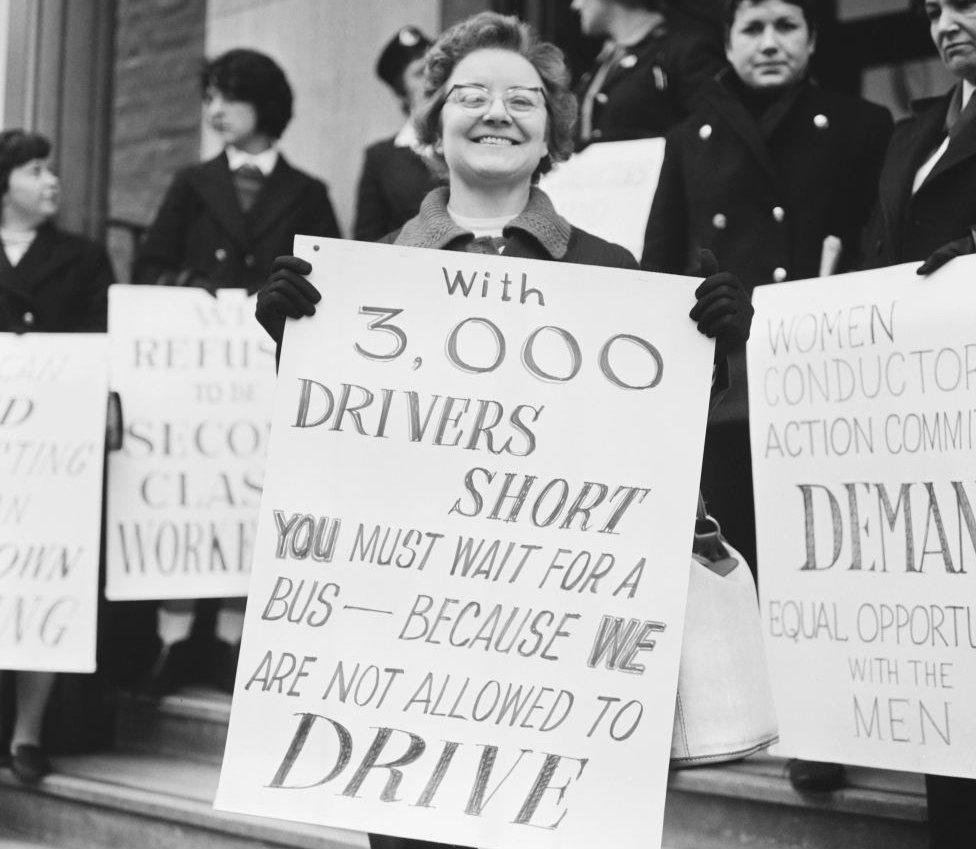
"Women? Driving? Won't their handbags get stuck on the gear sticks?"
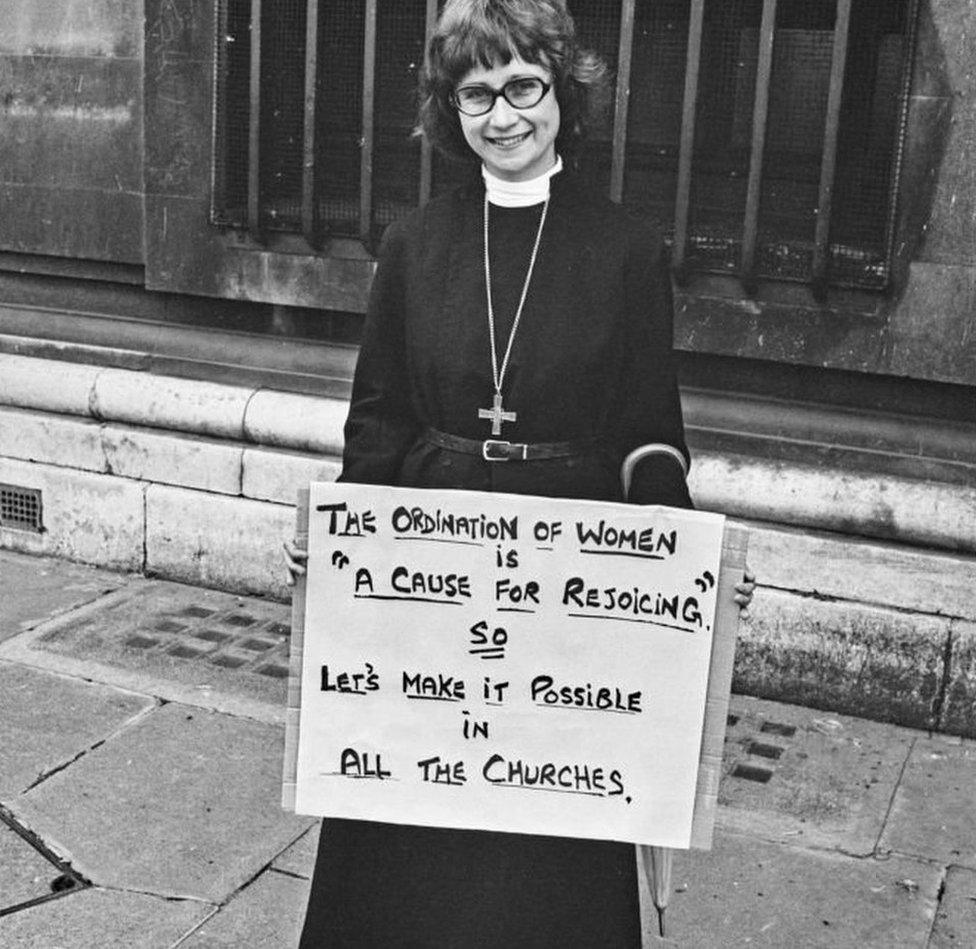
Short, snappy, memorable and easy to read at a distance - this advocate of equality decided to ignore the cardinal rules of placard-writing

Listen to the best of BBC Radio London on Sounds and follow BBC London on Facebook, external, X, external and Instagram, external. Send your story ideas to hello.bbclondon@bbc.co.uk